How serious is hydraulic contamination? Can it really damage your machine? Can you risk ignoring it?
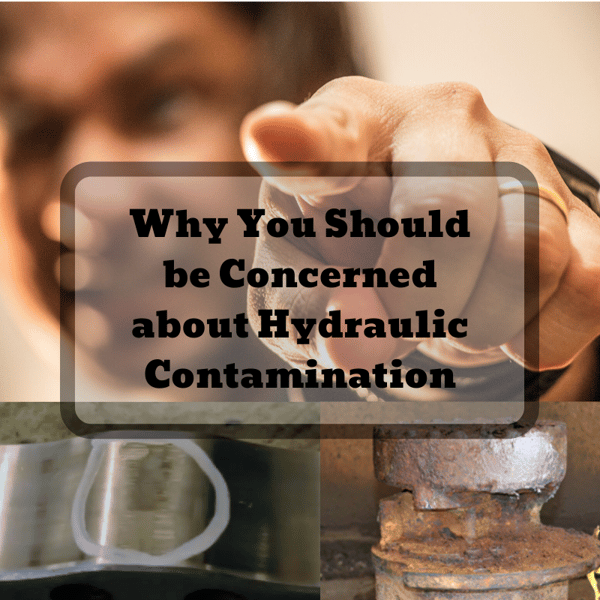
Here are a few other blog posts you might find of interest:
- 6 Types of Hydraulic Contamination
- Hydraulic Contamination in Hydraulic Motors
- Final Drive Lubrication and Contamination
Increased Wear
You might not think a single grain of sand could do much damage to, say, a bearing in a hydraulic motor -- but you would be wrong. It is important to keep in mind the tremendous pressures and forces acting within that motor as torque and power are being transferred. That grain of sand can get caught between two metal surfaces that come into contact, displacing that thin layer of lubricant that is supposed to protect them. This leads to scratches, and over time there can be enough scratches in key areas to affect how well that hydraulic motor works.
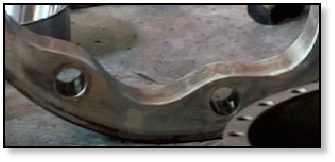
And if metal actually gets removed from a surface, that adds to the contamination levels and compounds the damage even further. That’s why it is important to keep an eye on the condition of your hydraulic fluid and replace parts that are beginning to show excessive surface wear.
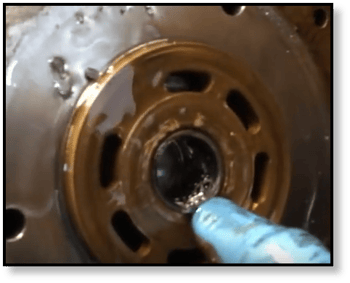
Clogged Filters
If you fail to change out the hydraulic filters on your machine and you have a contamination issue present, those filters are going to end up clogged. When that happens, there are a couple of different scenarios that can take place. If it is a filter without a bypass, like a case drain filter, then pressure is going to build up and unpleasant things will occur, starting with blown seals and leading to expensive damage that might not be repairable.
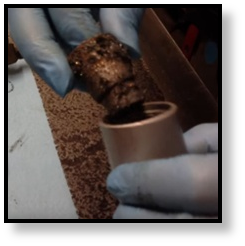
On the other hand, if the filter has a bypass that kicks in once it can longer function properly, then all the remaining contamination that filter is supposed to capture is then allowed to flow on through. That can lead to problems such as the surface damage we just discussed. You may end up with multiple hydraulic components damaged because of a clogged filter.
Clogged Valves
Valves can get clogged when small particles are trapped in them, and not only can that affect the productivity of your machine but it can be somewhat difficult to track down. That means extra downtime related to troubleshooting the symptoms. When valves aren't operating correctly, you may see pressure losses along with a loss of power or speed (especially when you machine is under a load).
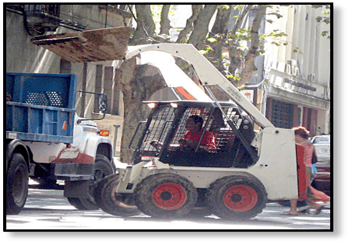
Reduced Efficiency
Particle abrasion can reduce the efficiency of your equipment, but that isn't the only way it can happen. The presence of air and/or water in your hydraulic fluid reduces its ability to be compressed, which has a very negative effect on performance and power.
Cavitation
Water in your hydraulic fluid can lead to cavitation, which can be worsened by the presence of other contaminants in the fluid. Cavitation, in turn, leads to severe surface damage to components that may not be repairable. And bits of metal from that surface damage compounds the hydraulic contamination issues.
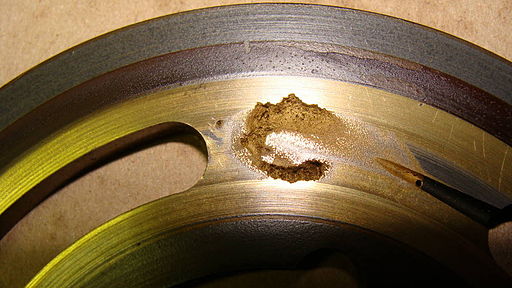
Mitigating Hydraulic Contamination
Hydraulic contamination can be hard to keep track of if you are a small outfit and cannot afford to expensive hydraulic filtering systems. However, that does not mean that you can't do anything.
If possible, try to only up open your system in clean environment where dust and similar debris won't be introduced into the system. Only use clean fluid, and keep that hydraulic fluid stored where it won't be exposed to moisture and temperature changes.
Only open up the hydraulic system when you have to and do not leave it open any longer than necessary -- than will help prevent the introduction of moisture, air, and other contaminants.

